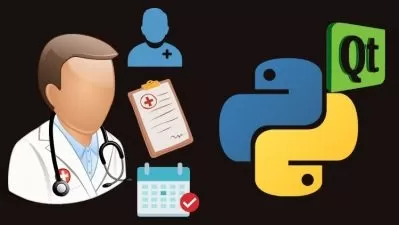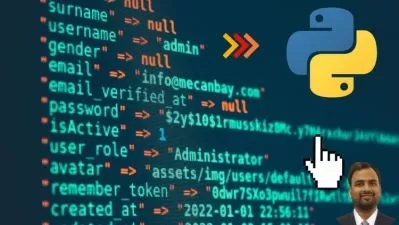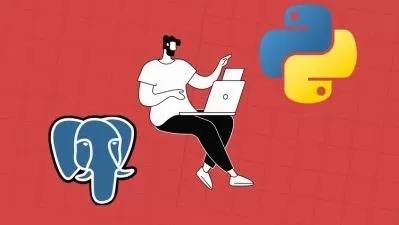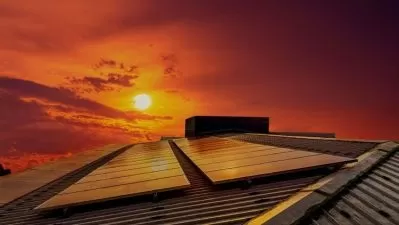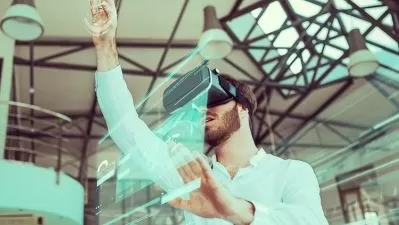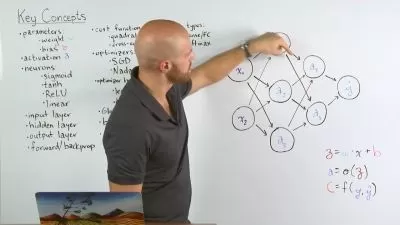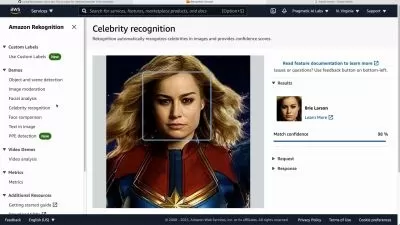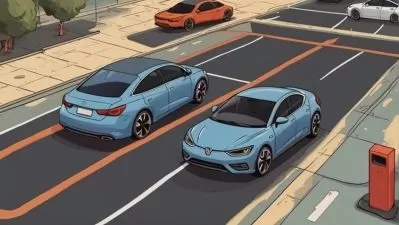Low-Light Image Enhancement and Deep Learning with Python
Karthik K
1:14:58
Description
Elevating Low-Light Photography with Python, Keras, Tensorflow, and Google Colab: A Deep Learning Hands-on Approach
What You'll Learn?
- Understand the challenges faced in low-light photography and the importance of image enhancement techniques.
- Gain familiarity with The LoL Dataset and its role as a resource for developing and evaluating low-light image enhancement algorithms.
- Learn how to set up a working directory in Google Drive for organizing project files and datasets.
- Acquire knowledge about the structure and contents of The LoL Dataset, including the training, testing, and validation sets.
- Develop proficiency in using Python, Keras, and Google Colab for implementing low-light image enhancement algorithms.
- Explore techniques, including selective kernel feature fusion, spatial and channel attention blocks, multi-scale residual blocks, and recursive residual groups.
- Understand the concepts of custom loss functions and metrics for evaluating model performance in image enhancement tasks.
- Gain practical experience in training, evaluating, and fine-tuning deep learning models for low-light image enhancement using real-world datasets.
- Learn how to visualize and analyze model training progress, including loss and performance metrics over epochs.
- Develop the skills to deploy trained models for enhancing low-light images and generating visually appealing results.
Who is this for?
What You Need to Know?
More details
DescriptionWelcome to the immersive world of deep learning for image enhancement! In this comprehensive course, students will delve into cutting-edge techniques and practical applications of deep learning using Python, Keras, and TensorFlow. Through hands-on projects and theoretical lectures, participants will learn how to enhance low-light images, reduce noise, and improve image clarity using state-of-the-art deep learning models.
Key Learning Objectives:
Understand the fundamentals of deep learning and its applications in image enhancement.
Explore practical techniques for preprocessing and augmenting image data using Python libraries.
Implement deep learning models for image enhancement tasks.
Master the use of Keras and TensorFlow frameworks for building and training deep learning models.
Utilize Google Colab for seamless development, training, and evaluation of deep learning models in a cloud-based environment.
Gain insights into advanced concepts such as selective kernel feature fusion, spatial and channel attention mechanisms, and multi-scale residual blocks for superior image enhancement results.
Apply learned techniques to real-world scenarios and datasets, honing practical skills through hands-on projects and assignments.
Prepare for lucrative job opportunities in fields such as computer vision, image processing, and machine learning, equipped with the practical skills and knowledge gained from the course.
By the end of this course, students will have the expertise to tackle complex image enhancement tasks using deep learning techniques and tools. Armed with practical experience and theoretical understanding, graduates will be well-positioned to secure rewarding job opportunities in industries seeking expertise in image processing and deep learning technologies.
Who this course is for:
- Individuals interested in learning Python programming for image enhancement and low-light photography.
- Students pursuing studies in computer science, data science, or related fields with a focus on image processing and computer vision.
- Professionals seeking to enhance their skills in image enhancement techniques, particularly in the context of low-light photography.
- Hobbyists and enthusiasts passionate about photography and interested in exploring techniques to improve image quality in challenging lighting conditions.
Welcome to the immersive world of deep learning for image enhancement! In this comprehensive course, students will delve into cutting-edge techniques and practical applications of deep learning using Python, Keras, and TensorFlow. Through hands-on projects and theoretical lectures, participants will learn how to enhance low-light images, reduce noise, and improve image clarity using state-of-the-art deep learning models.
Key Learning Objectives:
Understand the fundamentals of deep learning and its applications in image enhancement.
Explore practical techniques for preprocessing and augmenting image data using Python libraries.
Implement deep learning models for image enhancement tasks.
Master the use of Keras and TensorFlow frameworks for building and training deep learning models.
Utilize Google Colab for seamless development, training, and evaluation of deep learning models in a cloud-based environment.
Gain insights into advanced concepts such as selective kernel feature fusion, spatial and channel attention mechanisms, and multi-scale residual blocks for superior image enhancement results.
Apply learned techniques to real-world scenarios and datasets, honing practical skills through hands-on projects and assignments.
Prepare for lucrative job opportunities in fields such as computer vision, image processing, and machine learning, equipped with the practical skills and knowledge gained from the course.
By the end of this course, students will have the expertise to tackle complex image enhancement tasks using deep learning techniques and tools. Armed with practical experience and theoretical understanding, graduates will be well-positioned to secure rewarding job opportunities in industries seeking expertise in image processing and deep learning technologies.
Who this course is for:
- Individuals interested in learning Python programming for image enhancement and low-light photography.
- Students pursuing studies in computer science, data science, or related fields with a focus on image processing and computer vision.
- Professionals seeking to enhance their skills in image enhancement techniques, particularly in the context of low-light photography.
- Hobbyists and enthusiasts passionate about photography and interested in exploring techniques to improve image quality in challenging lighting conditions.
User Reviews
Rating
Karthik K
Instructor's Courses
Udemy
View courses Udemy- language english
- Training sessions 37
- duration 1:14:58
- Release Date 2024/07/24






